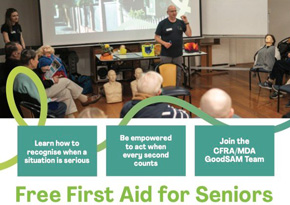Kindness shines in time of crisis: Israelis unite to support evacuees
As evacuated Israeli families from devastated Gaza-area communities pick up the pieces of their lives, the Ministry of Welfare has dispatched 500 social workers to provide emotional support and assistance.

Israelis take cover in a bomb shelter in Tel Aviv during a rocket barrage on Nov. 1, 2023. Photo by Gideon Markowicz/TPS
“We have welfare teams in every hotel, we also work on securing rights and providing financial aid. We help communities from the south and also communities that haven’t left their cities,” Limor Mosiyael, Director of Community Services from the Ministry of Welfare, told the Tazpit Press Service.
The social workers face many challenges dealing with painful stories of Hamas massacres, kidnappings, and loved ones still unaccounted for — a reality nobody expected. “We hear a lot about the sense of loss and the shattered trust of the citizens. This is a national trauma, and we experienced a second Holocaust in 2023. I think we’ll need to establish new models and theories for dealing with the situation, because there’s an ongoing trauma that will continue, even after the war,” Mosiyael added.
The social workers, government agencies, and non-profit organisations have been offering survivors and evacuees emotional support, and especially a wide range of activities for the displaced children, to alleviate stress.
Tami Bladav, who manages hotels that are housing evacuees in Tel Aviv, told TPS that support tends to focus on children, but parents need help too. Besides the mothers whose husbands were killed or kidnapped by Hamas on Oct. 7, many more mothers are facing the stresses of war alone with their husbands called up for reserve duty.
“We provide individual and group psychological therapy for children, and in every hotel where evacuees stay, there are many educational programs for the children. I believe it’s even more challenging for the parents. While the children are surrounded by warmth and love, we tend to forget that their parents are also dealing with trauma and need to function as parents,” Bladav told TPS.
Numerous non-profit organisations that have also stepped in to assist.
One of these organisations is Chabad, which supports Jews worldwide in a variety ways, and is best known for its religious outreach.
“When the war began, we had no doubt that we had to help,” Rabbi Dotan Korti told TPS. Korti is a student outreach rabbi in the central Israeli city of Rishon LeTsiyon, where many evacuees are staying.
“On the first Shabbat, we hosted 45 families for a Shabbat meal. We enveloped them with love, but not just us – many people from the city came to donate and help, and there, you can see our strength as a nation, as we witness the good hearts of people in an endless way,” he said.
“These people feel like refugees, and they are walking around with some bitterness and sorrow. We have to understand that they are the ones who have guarded our borders, absorbed the hard blow, and without them we wouldn’t know where our enemies might have reached. They protected and preserved us, now it’s our turn to help them,” Korti stressed.
Chabad representatives across the country have spearheaded the donations of thousands of meals daily,
“One of the people asked me if I had tefillin [phylacteries] to give him,” said Korti. The small black leather boxes with black leather straps and Biblical verses written on parchment inside are worn by adult Jews during weekday prayers.
One man forced to flee his community with his family was unable to take his tefillin, and Korti obtained a replacement set.
“Beyond the severe trauma, they left behind basic things that could have allowed them to stay sane,” Korti explained.
Bladav said the kindness Israelis are showing each other despite the stresses of war makes her optimistic.
“There’s a well-organized and professional human system here, and with the strength of the families and our ministry, we’re ready for this challenge and will succeed,” she said.
TPS






